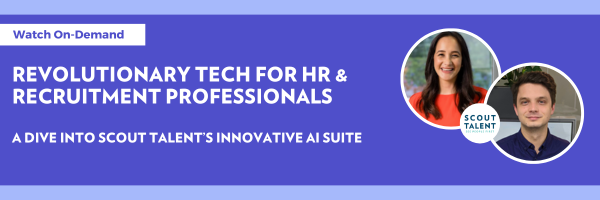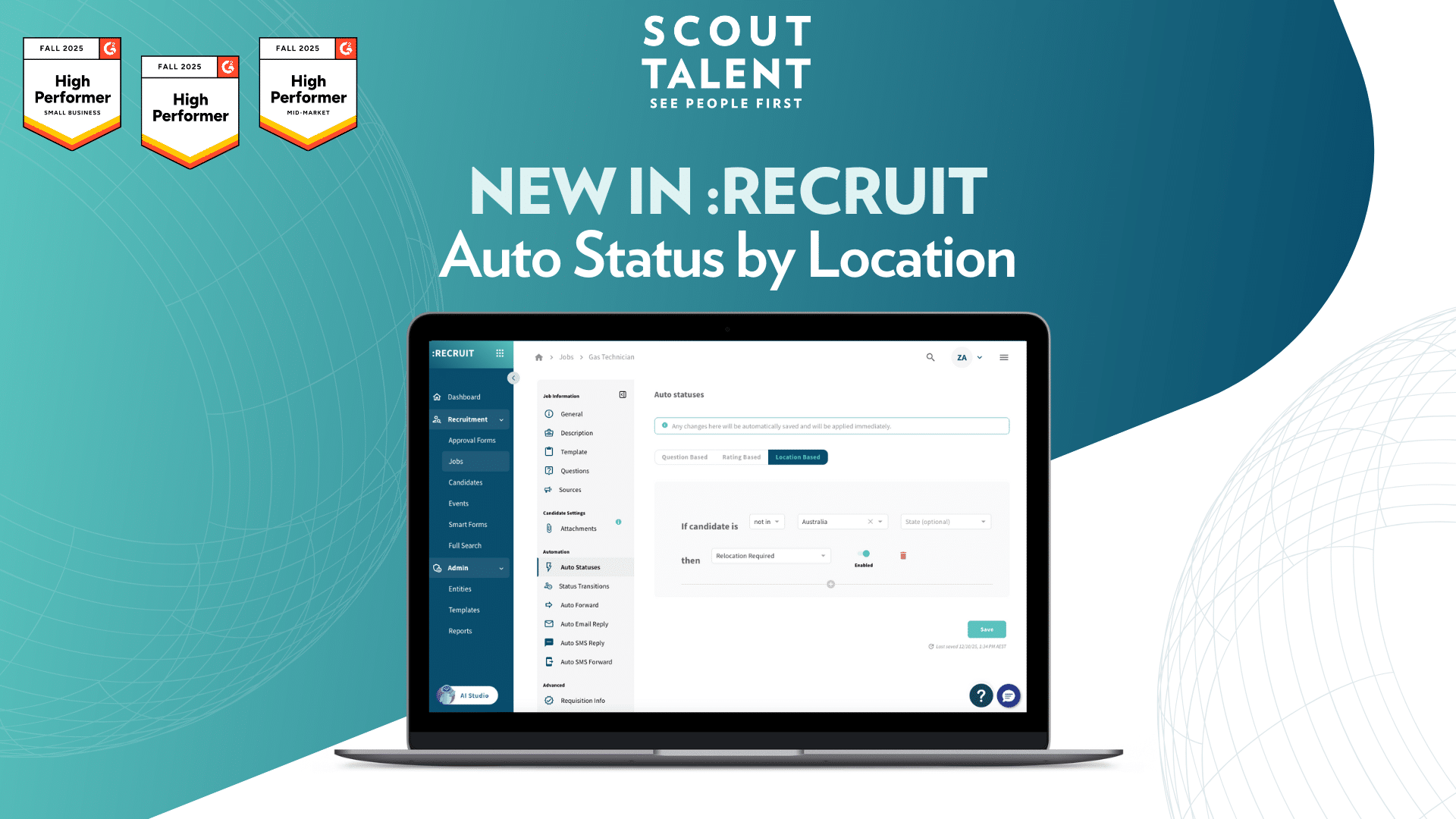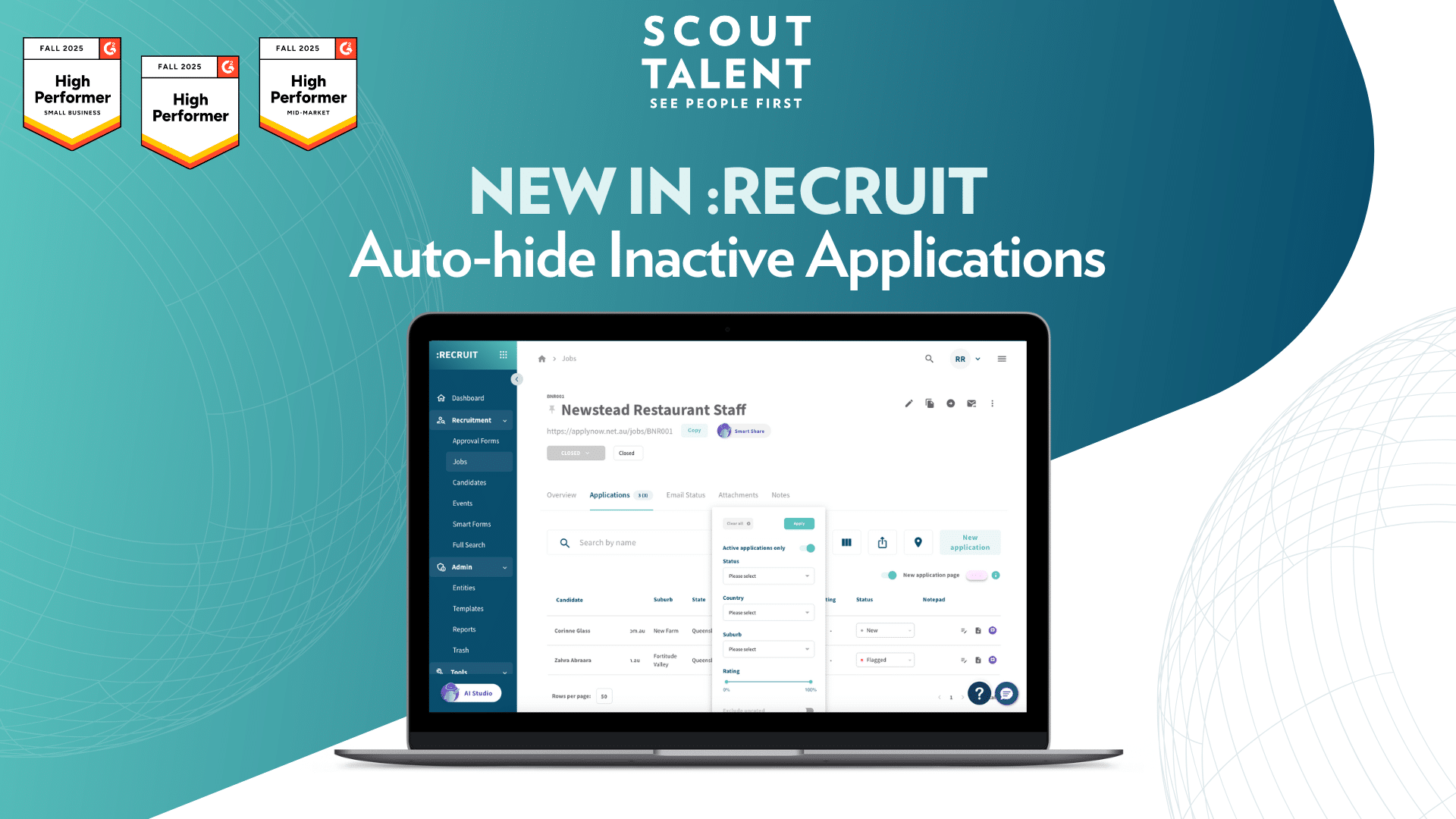In recent years, the increasing adoption of artificial intelligence (AI) has made a significant impact on various industries, and human resources (HR) is no exception. AI has found its way into multiple areas of HR, including talent acquisition, employee engagement, performance management, and learning and development. 66% of CEOs think AI can boost HR, 50% of HR executives agree that AI can transform HR and 92% of HR leaders plan on using AI to acquire talent. For instance, AI-powered tools can sift through hundreds of resumes within seconds, identifying the most suitable candidates and drastically reducing the time and effort spent on manual screening. Additionally, AI-driven chatbots can provide round-the-clock support for employees, answering frequently asked questions and alleviating pressure on HR teams.
The rise of AI technologies has led to a shift in job requirements, with employers seeking professionals who possess the skills to leverage AI tools effectively. By incorporating AI into daily functions, professionals can enhance their decision-making process, improve operations, and focus more on strategic initiatives. Recent research shows that approximately 1 in 4 organisations now utilise automation or AI for various HR-related tasks, such as recruitment and hiring and that number is expected to grow very quickly and very soon. Embracing AI is not just a matter of efficiency and convenience; it is vital to remain competitive in the future of work.
Read on to learn more about how you can learn, understand, embrace and employ AI in your everyday role.
1. Understand AI and its Capabilities
To fully embrace AI and drive transformation in HR, you need to have a solid understanding of AI technologies and their capabilities. AI encompasses various technologies that can significantly impact HR functions.
But First, What is AI?
Artificial Intelligence is an incredible technology that allows machines to perform tasks with human-like intelligence. It can be divided into two main types: AI and Generative AI. AI (Artificial Intelligence) refers to systems that are programmed to accomplish specific tasks and make decisions based on predetermined rules and patterns. For example, AI can be used in chatbots to provide answers to frequently asked questions or in self-driving cars to navigate the roads safely. On the other hand, Generative AI goes a step further by enabling machines to generate new content and ideas independently, often mimicking human creativity. For instance, Generative AI can be used in creating art, composing music, or even writing stories and poems. While AI follows predefined guidelines, Generative AI has the ability to innovate and produce novel outputs, pushing the boundaries of what machines can achieve. Chat GPT, is a popular example of Generative AI .
Understanding AI provides several benefits for you. Firstly, it enables you to identify opportunities for AI implementation within your team’s processes. Recognising tasks that can be automated or augmented by AI allows you to streamline workflows, saving time and resources. Furthermore, understanding AI empowers you to make informed decisions regarding the selection and implementation of AI-powered tools and technologies.
How to Increase Your AI Knowledge
Begin by leveraging a few select resources. Online courses and certifications, such as those offered by reputable platforms like LinkedIn Learning, provide great foundational to comprehensive introductions to AI concepts and applications. Additionally, attending industry conferences, workshops, or webinars on AI, focused on HR can offer valuable insights and networking opportunities.
Scout Talent recently hosted a webinar on AI and its impact on Talent Acquisition. Click below to learn more and watch on demand.
Another learning option is to reach out to your professional association and/or society. For HR, large associations like the Australian HR Institute (AHRI), provides certifications, training, and events for HR professionals. Engaging with AI experts and participating in online communities or forums can also provide valuable insights and facilitate knowledge-sharing.
2. Identify HR Processes Open to Automation
As advancements in technology continue to reshape various industries, the field of Human Resources is also experiencing significant changes. By automating repetitive and time-consuming tasks, AI can enable HR professionals to focus on more strategic and value-adding activities.
Some examples of tasks that can be automated include resume screening, candidate sourcing, interview scheduling, and employee data management. These repetitive tasks can be time-consuming, but by leveraging AI, the efficiency and accuracy of these processes can be significantly improved.
Examples:
- AI can be utilised to analyse resumes and identify the most relevant candidates based on specific job requirements, saving time and effort.
- ATS tools like Scout Talent’s AI Screen can help reduce the time to hire by assisting with applicant screening, preparing interview questions, and sharing candidate insights with colleagues. Freeing up your time to dive straight into meaningful interactions, and make informed decisions.
- AI-powered chatbots can provide immediate responses to candidate queries, improving candidate experience and engagement throughout the hiring process.
- In employee onboarding, AI can automate administrative tasks such as new hire paperwork and training processes, allowing HR professionals to focus on creating a more personalised and engaging onboarding experience.
While automating HR processes can bring numerous benefits, you should carefully consider certain factors before implementing AI-enabled automation:
- The complexity of the task(s).
- The potential impact on employee experience.
- The reliability of the AI technology.
- Data privacy and security concerns.
- The overall cost-effectiveness of automation compared to manual processes.
By weighing these factors, you will be able to make an informed decision about which processes are most suitable for automation and ensure a successful implementation.
3. Invest in AI-powered HR Tools
The global HR software market is projected to be worth nearly $39 Billion by 2027, underscoring its growing popularity and effectiveness in supporting HR roles. AI-powered tools can analyse vast amounts of data, identify patterns, and provide actionable insights, enabling HR professionals to make informed decisions, and helping you to streamline functions and improve overall efficiency. By automating routine tasks, AI tools free up valuable time and resources, allowing you time to focus on strategic initiatives and employee engagement. AI-powered tools can also enhance the accuracy and speed of HR processes, leading to improved productivity and better outcomes for organisations.
Various AI-powered HR tools are available in the market, each catering to specific HR functions:
- Talent Management Software: Leverages AI algorithms to assist in candidate screening, performance management, and succession planning.
- Employee Engagement Platforms: Utilises sentiment analysis and natural language processing to gauge employee satisfaction and provide personalised feedback.
- Workforce Analytics Tools: Helps HR professionals analyse workforce data, identify trends, and predict future workforce needs.
Factors to Consider When Selecting and Implementing AI Tools
When selecting and implementing AI tools, consider several factors to ensure successful integration and maximise the benefits.
- Needs Assessment: Assess your organisation’s specific needs and objectives to select the most appropriate tool.
- Compatibility: Evaluate the compatibility of the tool with your existing HR systems, and look at its ease of use.
- Data and Security Concerns: Ensure the new tech conforms to your organisation’s data privacy and security policies.
- Scalability: Ensure the product will grow with your organisation. Double-check that the vendor provides enough support to see your organisation through long-term success.
- Training: Determine the amount of training involved and ensure that both the vendor and your organisation have key stakeholders in place to provide the necessary training for the effective adoption and utilisation of the tool.
Investing in AI-powered HR tools can significantly enhance HR functions by automating tasks, providing valuable insights, and improving overall efficiency. These tools not only save time and resources but also give you time back. By making informed decisions and effectively integrating AI-powered tools, you can easily transform your HR practices and drive organisational success.
4. Foster a culture of data-driven decision-making
Data has become the lifeblood of organisations, and HR departments are no exception. Data-driven decision-making enables all departments to make informed and strategic decisions that have a direct impact on the organisation’s bottom line. Data-driven decision-making reduces the reliance on gut feelings or intuition, which can be based on instincts or feelings and prone to biases. By collecting and analysing HR data, HR professionals gain valuable insights into employee performance, engagement levels, and overall organisational efficiency.
Through data, you gain the ability to quickly identify trends, patterns, and potential problems before they become critical. Data-driven decision-making also empowers HR teams to evaluate the success of their initiatives and make fact-based adjustments when necessary.
Artificial Intelligence has revolutionised the way we can collect, analyse, and interpret data. AI technology can handle vast amounts of data in a fraction of the time it would take a human, making it a valuable tool. By using AI-powered algorithms, HR professionals can extract meaningful insights from HR data, identify hidden patterns, and make accurate predictions.
- Promote data literacy: Take advantage of training opportunities that provide you with the skills and knowledge to effectively analyse and interpret data. Develop your data literacy skills and understand how to make informed decisions using data.
- Lead by example: As a leader, set a powerful example for others and demonstrate your commitment to data-driven decision-making. Incorporate data into your decision-making processes, relying on data rather than personal opinions or biases.
- Create transparency and accessibility: Make sure that data is easily accessible to everyone in the organisation. Utilise data visualisation tools and dashboards that allow you to explore and analyze data relevant to your role.
- Foster a learning environment: Take advantage of training opportunities and workshops focused on data analysis and interpretation. Embrace experimentation and taking risks with data-driven projects. Learn from both successes and failures and share your knowledge with others.
- Recognise and reward data-driven efforts: Acknowledge and reward those who make notable contributions through data-driven decision-making. Celebrate successes and share stories of how data-driven insights have positively impacted the organisation.
- Continuously evaluate and refine data processes: Regularly assess the effectiveness of data processes and decision-making frameworks within the organisation. Seek feedback and adapt your data practices to align with the evolving needs of the business and advancements in technology.
By implementing these approaches, you can help create a culture where data-driven decision-making becomes an integral part of the organisation. This will lead to improved decision outcomes and overall business success.
5. Understand AI’s Limitations
While AI technology has many capabilities and benefits in HR, it is important to note that human oversight and intervention are still crucial. AI is not a complete replacement in several ways. Specifically in Emotional intelligence, Empathy, Adaptability and Creativity, Ethics, Accountability, and Relationship building.
- Decision-making and judgment: AI systems can provide recommendations or insights based on data analysis, but ultimately, human HR professionals need to make the final decisions considering multiple factors, context, and their own expertise. Human judgment is essential in evaluating complex situations, understanding individual circumstances, and making fair and ethical decisions.
- Emotional intelligence and empathy: AI lacks emotional intelligence and empathy, which are vital in HR interactions. HR professionals possess the ability to understand and address employees’ emotions, concerns, and well-being. They can provide support, guidance, and personalised solutions that AI may struggle to deliver.
- Relationship building: HR is about building relationships and trust with employees. Humans excel at building rapport, understanding individual needs, and establishing connections. These interpersonal skills are critical in employee engagement, conflict resolution, and fostering a positive work environment.
- Adaptability and creativity: HR functions often require adaptability and creativity to address unique challenges and come up with innovative solutions. While AI can assist with data-driven insights, humans possess the ability to think outside the box, adapt to dynamic situations, and find novel approaches to HR problems.
- Ethics and accountability: Humans are responsible for ensuring that AI systems are used ethically and that potential biases are addressed. HR professionals must monitor and validate AI algorithms, ensure fairness and non-discrimination, and be accountable for the outcomes produced by AI systems.
AI in HR should be seen as a tool to augment and support human HR professionals, rather than replace them. Humans bring essential qualities, such as judgment, empathy, relationship-building, adaptability, creativity, and ethical oversight, that are still indispensable for effective HR management and cannot be replicated by AI Technology…yet.
Are you ready to embrace AI and say goodbye to hours of recruitment work?
Scout Talent recently launched AI Suite, AI-powered modules that automate many repetitive tasks. We launched this revolutionary tech to help HR professionals like you find the best talent, faster than ever before. By using AI Suite, you’ll be able to accomplish the following tasks in just minutes:
- Craft exciting job advertisements
- Generate informative interview questions
- Distill countless hours of resume screening
- And so much more.
Don’t let the burden of content creation and repetitive tasks hold you back from achieving your talent goals. Embrace the efficiency and effectiveness of AI Suite today and book a 15-minute demo to see it in action.
With the time saved, you can focus on engaging with high-quality candidates, enhancing your candidate care, and strengthening your employer brand. Take the leap and unlock the power of efficient recruitment with AI Suite today!





